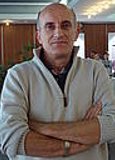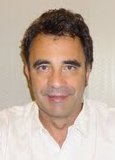Plenary Sessions
In this edition, there will be 3 plenary sessions associated to Track 1 (Information Technology in Automation), Track 2 (Industrial Communication Systems) and Track 3 (Real-Time and (Networked) Embedded Systems [RTNES]).
Track 1 Plenary Session
Speaker: Roland Weiss, Global Research Area Manager - Software, ABB Corporate Research, Germany
 Biodata: Roland Weiss works as Global Research Area Manager for Software at ABB Corporate Research since January 2014. He is located in the German Corporate Research Center at Ladenburg, Heidelberg region, Germany. In his current position, he globally manages ABB's software research, covering all systems levels, from enterprise level to ultra-low end embedded systems, and addressing various domains, e.g. Building Automation, Network Distribution and Transmission, Industrial Automation, Power Generation etc.
Biodata: Roland Weiss works as Global Research Area Manager for Software at ABB Corporate Research since January 2014. He is located in the German Corporate Research Center at Ladenburg, Heidelberg region, Germany. In his current position, he globally manages ABB's software research, covering all systems levels, from enterprise level to ultra-low end embedded systems, and addressing various domains, e.g. Building Automation, Network Distribution and Transmission, Industrial Automation, Power Generation etc.
He joined ABB as a researcher in December 2005 and later on he held various R&D management positions within ABB, both in Research and in Business Units, targeting several of ABB's software intensive systems like Symphony Plus, 800xA, and Industrial Robots.
Roland received his PhD from the University of Tübingen, Germany in 2003 in the area of compiler construction. From 2004 to 2005, he was responsible for a research team on Formal Methods, also at University of Tübingen.
Summary: Industrial automation has very strong demands on its software systems. A multitude of sensory data – process, context, and asset information - has to be processed, reacted upon, visualized, and archived, often at high frequency and within very tight time bounds. Today’s highly automated and flexible production processes require this – changes to the manipulated products are common, but investments into assets are considered long-term. Therefore, ABB treats Software as one of its key research areas. We investigate software engineering and architectures as well as user experience for developing world-class ABB products.
In this talk we will first elaborate on the challenges that today’s Industrial Automation domain poses on its software systems and then we will detail several research activities. A special focus is put on these areas, which will be exemplified with past and current research activities:
- How to build sustainable systems, i.e. dealing with the requirements of long life-cycles of industrial software systems once deployed.
- How to utilize the significant communication and computing capabilities in even smallest automation devices today. This introduces a strong need to understand the system and communication architectures, but also impact on authorization, identification, and other security and system demands.
- How modern interaction technologies (e.g. touch displays, gesture tracking) increasingly influence the way engineers and operators work with automation systems
Track 2 Plenary Session
Speaker: Stefano Vitturi, National Research Council of Italy, CNR-IEIIT, Italy
 Biodata: Stefano Vitturi is a senior researcher with the Institute of Electronics and Computer and Telecommunications (IEIIT) of the National Research Council of Italy (CNR) since January 2002.
Biodata: Stefano Vitturi is a senior researcher with the Institute of Electronics and Computer and Telecommunications (IEIIT) of the National Research Council of Italy (CNR) since January 2002.
He received the Laurea degree (summa cum laude) in Electronics Engineering from the University of Padova, in 1984.
From 1985 to 2001 he has worked at the control and data acquisition system of RFX, a nuclear fusion experiment included in the Fusion Program of the European Community, located in Padova, Italy. His research interests include industrial communication systems, real time communication networks (wired/wireless), implementation and performance analysis of devices conforming to the most popular industrial communication protocols. In these research fields he has authored/co-authored more than 100 scientific papers published in refereed international journals, books and conference proceedings
Summary: The core problem of industrial wireless networking is represented by the necessity of providing satisfactory levels of timeliness and reliability, particularly at the lowest levels of factory automation systems. Unfortunately, as it is well known, the quality of wireless communication is often degraded by fading, multipath propagation, shadowing and interference. Also, in industrial environments, the movement of machineries and the presence of (possibly mobile) obstacles may enforce such negative phenomena, leading to the inevitable introduction of critical random delays in data transmission.
In the first part, this presentation addresses the constraints that are commonly imposed to industrial wireless networks and shows how they are faced by the available technologies. Then, the most relevant research trends in wireless communication that could reveal of interest for industrial networks are reviewed.
Finally, the presentation focuses on how these research trends could enhance the performance of industrial wireless communication systems, through the analysis of practical applications typical of the factory floor.
Track 3 Plenary Session
Speaker: Marco di Natale, Scuola Superiore S. Anna, Italy
 Biodata: Marco Di Natale is a IEEE Senior Member and Associate Professor at the Scuola Superiore Sant’Anna, Italy, where he leads the area on embedded architectures and models.
Biodata: Marco Di Natale is a IEEE Senior Member and Associate Professor at the Scuola Superiore Sant’Anna, Italy, where he leads the area on embedded architectures and models.
He was a visiting Researcher at the University of California, Berkeley in 2006 and 2008-2009. He worked as senior scientist and led the group on automotive architectures exploration and selection at General Motors R&D in Berkeley, California, and Warren, Michigan,USA.
He is currently visiting fellow at the United Technologies Corporation, USA. His research interests are in embedded systems architecture and behavior models, real-time systems and system analysis.
He has been author of more then 150 papers, winner of five best paper awards, and one best presentation awards. He has served as Program and General Chair for the Real-Time Application Symposium, and a Track Chair for the DATE Conference. He is on the editorial board of the IEEE Transactions on Industrial Informatics, and the Chair of the Real-Time Systems subcommittee of the IEEE IES TCFA.
Summary: The talk gives an overview of the general problem of developing, providing support and analyzing (guaranteeing) embedded applications that depend on time. Even the definition of time determinism is not free from ambiguity. The term means different things for different research communities acoording to the level at which you want to abstract time behavior. The talk attempts at a very quick overview of the last 20 years to open a discussion on whether we are any closer to achieve time determinism and what type of determinism and explores possible pathways in the near future for a predictable development environment for CPS.






